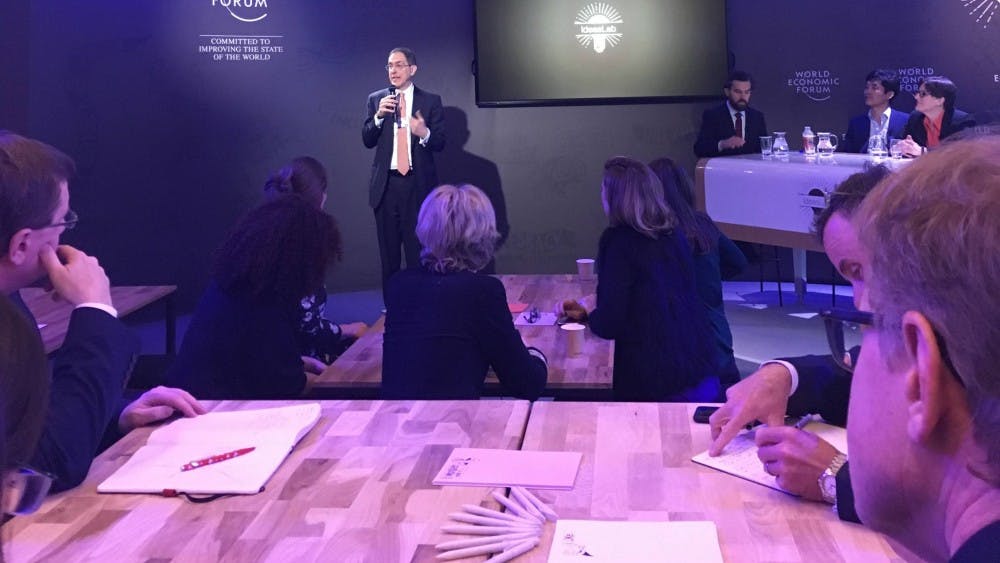From Jan. 22 to Jan. 25, world leaders in all fields, including a delegation of University faculty, met in Davos-Klosters, Switzerland, for this year’s World Economic Forum (WEF), themed “Globalization 4.0.” Dozens of political and business leaders, celebrities, economists, scientists, and journalists met to discuss the problems facing the modern world.
The University’s team consisted of President Christopher Eisgruber ’83, Dean of the School of Engineering and Applied Science Emily Carter, chemical and biological engineering associate professor Clifford Brangwynne, genomics professor Michael Levine, and University spokesperson and media relations director Ben Chang.
The University delegation spoke formally at the bioengineering panel on the subjects of climate change, energy, plastic waste, and ocean pollution. Aside from biotechnology, Eisgruber spoke on the importance of diversity and inclusion of varying opinions to find solutions to the problems of the future.
Professors also attended smaller, private discussions behind closed doors with their peers from other academic institutions and corporations.
“This was a well-attended and stimulating discussion around the exciting possibilities that bioengineering promises to society, from new technologies built on biological substrates to solving major global challenges like energy and climate change, to advanced therapeutics approaches to cure diseases like cancer and ALS [Lou Gehrig's disease],” Brangwynne explained.
Aside from formal discussions about scientific advancement and developments, the WEF provided a unique opportunity for world leaders and celebrities to meet in an unsupervised and relatively private environment.
“In these interactions, partnerships, collaborations, and future work is important,” Chang noted. “Engaging key influential media figures is the groundwork for future conversations.”
According to Chang, it is critical for universities, corporations, and celebrities to meet in one place to further the diversity of backgrounds, opinions, and points of view. Additionally, meetings between these entities allow organizations who can afford to take long-term risks, such as the University, to make plans and discuss future projects and developments with corporations, which are less willing to take financial risks that may devalue their shares – but are capable of marketing and implementing the solutions to today’s global challenges.

“The mixture of people is quite potent,” Chang said. “It makes the forum very exciting.”
The WEF 2019 was the 48th annual meeting since the forum was founded in 1971.









